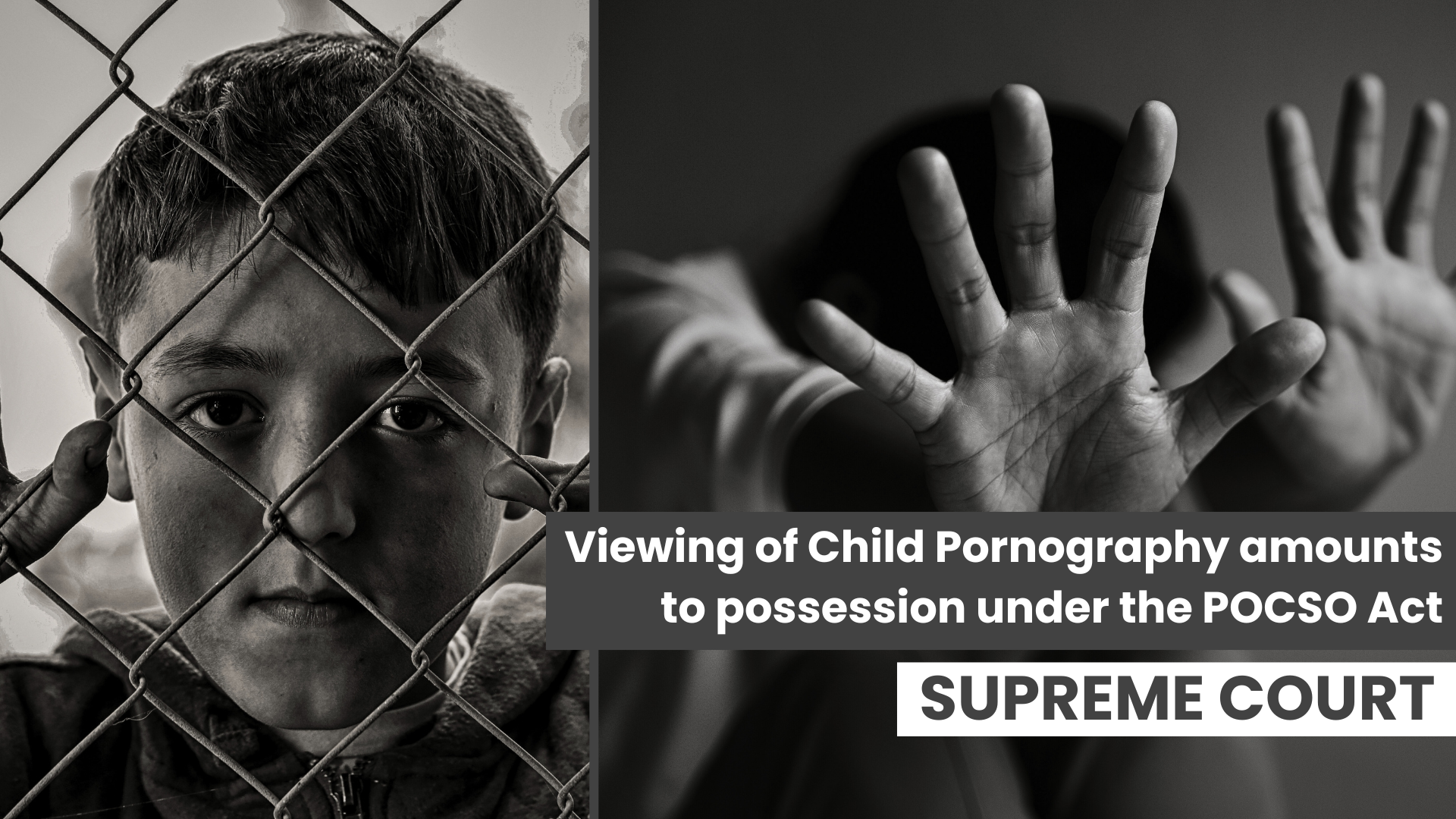
The Supreme Court of India has issued a significant judgment that redefines the scope of "possession" under Section 15 of the Protection of Children from Sexual Offences Act (POCSO). The Court ruled that simply watching child pornography online, even without downloading or storing it, can still constitute "possession" of such material. This ruling is rooted in the concept of constructive possession, which the Court used to broaden the traditional understanding of possession beyond mere physical control.
To illustrate its point, the Court presented an example: If an individual, 'X,' regularly views child pornography online but does not download or save it on their device, 'X' would still be considered to possess the material. This is because, during the act of viewing, 'X' exercises control over the content—whether by pausing, sharing, enlarging, or adjusting the volume. Moreover, by choosing to view such material, 'X' demonstrates knowledge and control, which meets the criteria for possession under Section 15.
The Court also distinguished this scenario from one in which 'X' unknowingly receives a link from 'Z' that, when clicked, opens a child pornographic video. If 'X' immediately closes the link, they cannot be said to possess the material, as they had no prior knowledge of its content. However, if 'X' continues to view the content for an unreasonable amount of time, they would then be deemed to possess the material, having acquired sufficient knowledge and control over it during that period.
In its judgment, the Court emphasized the importance of reporting such incidents. If someone like 'X' inadvertently opens a link containing child pornography, they would only be absolved of liability if they report the incident to the authorities. Simply closing the link is not enough; failure to report the material constitutes the actus reus under Section 15(1) of POCSO.
Section 15 of the POCSO Act criminalizes the storage or possession of child pornographic material with the intent to transmit it. The Court, led by the CJI DY Chandrachud and Justice JB Pardiwala, further explained that the intent to transmit such material can be inferred if an individual fails to delete it and report it to the appropriate authorities.
By applying the doctrine of constructive possession, the Court expanded the definition of possession to include situations where an individual has the power and intent to control illegal content, even without physically storing it. The judgment concludes that any act of viewing, distributing, or displaying child pornographic material online, without physical possession or storage, still constitutes possession under Section 15 of the POCSO Act, as long as the individual exercises control over the material.
JUST RIGHTS FOR CHILDREN ALLIANCE vs. S. HARISH Diary No.- 8562 - 2024

